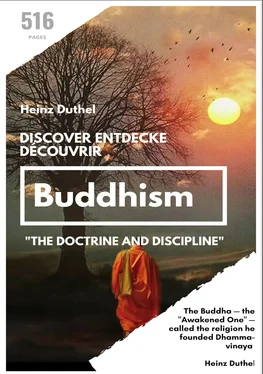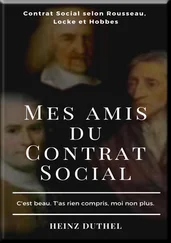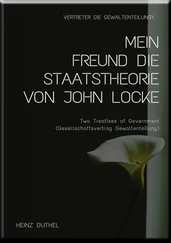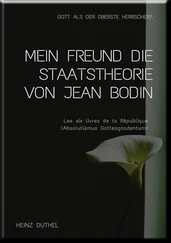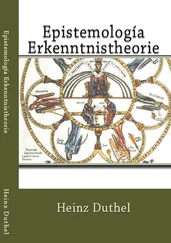Contents
* The Bodhisatta (Buddha-to-be)
* The Awakening
* After the Awakening
* Setting the Wheel of Dhamma in Motion
* Forty-five years of teaching
* The Buddha's last days
* Postscript: Many names for the Buddha
The Bodhisatta (Buddha-to-be)
Asita, the seer, visits the newborn prince
[Date: -80 BE]
Asita the seer, in his mid-day meditation, saw the devas of the Group of Thirty — exultant, ecstatic — dressed in pure white, honoring Indra, holding up banners, cheering wildly, & on seeing the devas so joyful & happy, having paid his respects, he said: "Why is the deva community so wildly elated? Why are they holding up banners & waving them around? Even after the war with the Asuras — when victory was the devas', the Asuras defeated — even then there was no excitement like this. Seeing what marvel are the devas so joyful? They shout, they sing, play music, clap their hands, dance. So I ask you, who live on Mount Meru's summit. Please dispel my doubt quickly, dear sirs." "The Bodhisatta, the foremost jewel, unequaled, has been born for welfare & ease in the human world, in a town in the Sakyan countryside, Lumbini. That's why we're all so wildly elated. He, the highest of all beings, the ultimate person, a bull among men, foremost of all people, will set turning the Wheel [of Dhamma] in the grove named after the seers, like a strong, roaring lion, the conqueror of beasts." Hearing these words, Asita quickly descended [from heaven] and went to Suddhodana's dwelling. There, taking a seat, he said to the Sakyans: "Where is the prince? I, too, want to see him." The Sakyans then showed to the seer named Asita their son, the prince, like gold aglow, burnished by a most skillful smith in the mouth of the furnace, blazing with glory, flawless in color. On seeing the prince blazing like flame, pure like the bull of the stars going across the sky — the burning sun, released from the clouds of autumn — he was exultant, filled with abundant rapture. The devas held in the sky a many-spoked sunshade of a thousand circles. Gold-handled whisks waved up & down, but those holding the whisks & the sunshade couldn't be seen. The matted-haired seer named Dark Splendor, seeing the boy, like an ornament of gold on the red woolen blanket, a white sunshade held over his head, received him, happy & pleased. And on receiving the bull of the Sakyans, longingly, the master of mantras & signs exclaimed with a confident mind: "This one is unsurpassed, the highest of the biped race." Then, foreseeing his own imminent departure, he, dejected, shed tears. On seeing him weeping, the Sakyans asked: "But surely there will be no danger for the prince?" On seeing the Sakyans' concern he replied, "I foresee for the prince no harm. Nor will there be any danger for him. This one isn't lowly: be assured. This prince will touch the ultimate self-awakening. He, seeing the utmost purity, will set rolling the Wheel of Dhamma through sympathy for the welfare of many. His holy life will spread far & wide. But as for me, my life here has no long remainder; my death will take place before then. I won't get to hear the Dhamma of this one with the peerless role. That's why I'm stricken, afflicted, & pained."
— Snp III.11
The young prince grows disenchanted with his life of luxury
"Monks, I lived in refinement, utmost refinement, total refinement. My father even had lotus ponds made in our palace: one where red-lotuses bloomed, one where white lotuses bloomed, one where blue lotuses bloomed, all for my sake. I used no sandalwood that was not from Varanasi. My turban was from Varanasi, as were my tunic, my lower garments, & my outer cloak. A white sunshade was held over me day & night to protect me from cold, heat, dust, dirt, & dew.
"I had three palaces: one for the cold season, one for the hot season, one for the rainy season. During the four months of the rainy season I was entertained in the rainy-season palace by minstrels without a single man among them, and I did not once come down from the palace. Whereas the servants, workers, & retainers in other people's homes are fed meals of lentil soup & broken rice, in my father's home the servants, workers, & retainers were fed wheat, rice, and meat.
"Even though I was endowed with such fortune, such total refinement, the thought occurred to me: 'When an untaught, run-of-the-mill person, himself subject to aging, not beyond aging, sees another who is aged, he is horrified, humiliated, & disgusted, oblivious to himself that he too is subject to aging, not beyond aging. If I — who am subject to aging, not beyond aging — were to be horrified, humiliated, & disgusted on seeing another person who is aged, that would not be fitting for me.' As I noticed this, the [typical] young person's intoxication with youth entirely dropped away.
"Even though I was endowed with such fortune, such total refinement, the thought occurred to me: 'When an untaught, run-of-the-mill person, himself subject to illness, not beyond illness, sees another who is ill, he is horrified, humiliated, & disgusted, oblivious to himself that he too is subject to illness, not beyond illness. And if I — who am subject to illness, not beyond illness — were to be horrified, humiliated, & disgusted on seeing another person who is ill, that would not be fitting for me.' As I noticed this, the healthy person's intoxication with health entirely dropped away.
"Even though I was endowed with such fortune, such total refinement, the thought occurred to me: 'When an untaught, run-of-the-mill person, himself subject to death, not beyond death, sees another who is dead, he is horrified, humiliated, & disgusted, oblivious to himself that he too is subject to death, not beyond death. And if I — who am subject to death, not beyond death — were to be horrified, humiliated, & disgusted on seeing another person who is dead, that would not be fitting for me.' As I noticed this, the living person's intoxication with life entirely dropped away."
— AN 3.38
At age 29, the young prince goes forth into homelessness
[Date: -51 BE]
"Before my Awakening, when I was still an unawakened Bodhisatta, the thought occurred to me: 'The household life is crowded, a dusty road. Life gone forth is the open air. It isn't easy, living in a home, to lead the holy life that is totally perfect, totally pure, a polished shell. What if I, having shaved off my hair & beard and putting on the ochre robe, were to go forth from the home life into homelessness?'
"So at a later time, when I was still young, black-haired, endowed with the blessings of youth in the first stage of life, having shaved off my hair & beard — though my parents wished otherwise and were grieving with tears on their faces — I put on the ochre robe and went forth from the home life into homelessness."
— MN 36
Passers-by take notice of his serene radiance and mindfulness
Ongoing forth, he avoided evil deeds in body. Abandoning verbal misconduct, he purified his livelihood. Then he, the Buddha, went to Rajagaha, the mountain fortress of the Magadhans, and wandered for alms, endowed with all the foremost marks. King Bimbisara, standing in his palace, saw him, and on seeing him, consummate in marks, said: "Look at this one, sirs. How handsome, stately, pure! How consummate his demeanor! Mindful, his eyes downcast, looking only a plow-length before him, as one who's not from a lowly lineage: Send the royal messengers at once to see where this monk will go." They — the messengers dispatched — followed behind him. "Where will this monk go? Where will his dwelling place be?" As he went from house to house — well-restrained, his sense-doors guarded, mindful, alert — his bowl filled quickly. Then he, the sage, completing his alms round, left the city, headed for Mount Pandava. "That's where his dwelling will be." Seeing him go to his dwelling place, three messengers sat down, while one returned to tell the king. "That monk, your majesty, on the flank of Pandava, sits like a tiger, a bull, a lion in a mountain cleft."
Читать дальше
